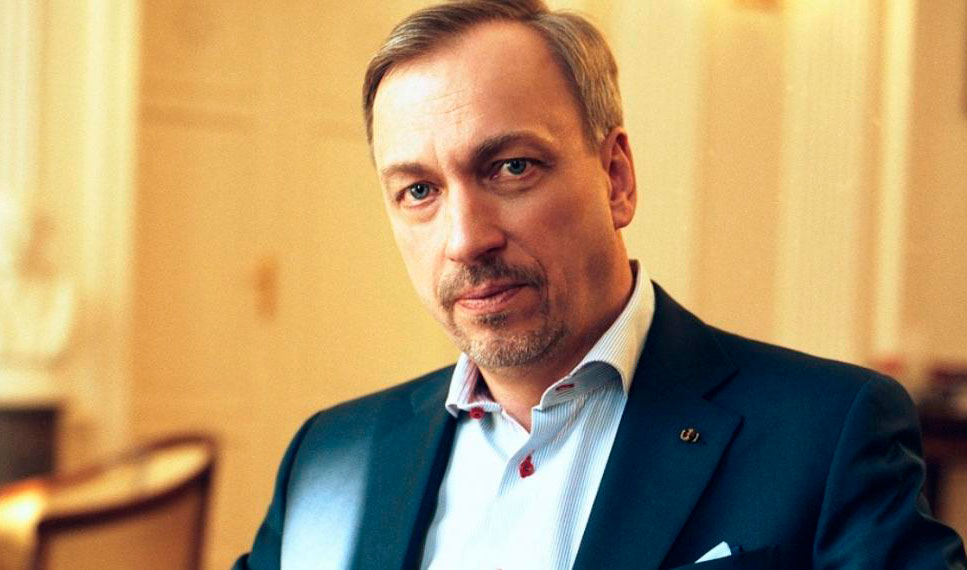MEPs visit Belarus to hear conditions for addressing systemic human rights crisis

Bogdan Zdrojewski, head of the European Parliament’s delegation for relations with Belarus. Photo: euroradio.fm
On July 19, a delegation of the European Parliament met in Minsk with representatives of the Belarusian civil society organizations, who provided their assessment of the current situation in the country and spoke about the obstacles and constraints they face in their work.
The EP delegation for relations with Belarus, headed by Bogdan Zdrojewski, a Polish member of the European People’s Party, included MPs from Poland, Lithuania, Latvia and Germany, representing four different political groups. The meeting was attended by members of various non-governmental organizations: Aleh Aheyeu (BAJ), Volha Smalianka (Lawtrend), Vasil Sankovich (BHC), Sviatlana Karaliova (NP EaP CSF), Aleh Volchak (Legal Assistance to the Population), Miraslau Kobas (Sapieha Foundation), Valiantsin Stefanovich (Human Rights Center "Viasna").
The NGO representatives told the MEPs about the current situation in the country, including various aspects and problems, and noting the lack of systemic changes.
According to the human rights activists, in recent months there have been some positive signals from the authorities, there has been selective communication with the representatives of civil society, but one has every reason to note the lack of progress in the filed of human rights.
Summing up the meeting, Viasna’s representative drew attention to the main problems - the recurrent nature of repression and the lack of a direct dialogue between the authorities and civil society.
“We have observed recurrent repression since 2006. The events of this spring once again confirmed this trend: when the authorities regard any event as critical for themselves, which, in their opinion, may destabilize the situation in the country, they immediately change their ‘soft practices’ and resort to a typical set of repressive measures, including arrests, detention, prosecution for political reasons, and so on,” said Valiantsin Stefanovich. “I recalled that in the spring we saw the events when over a thousand people were repressed in one form or another. I recalled that the remaining 14 defendants in the ‘rioting case’ (or the ‘White Legion case’) were only released from custody on the eve of the OSCE Parliamentary Assembly’s session of in Minsk, but the criminal charges against them have not been dropped, and they are still under investigation.”
Stefanovich emphasized the fact that for the Belarusian human rights community the existence of political prisoners is unacceptable per se.
Among possible solutions to the problem, he mentioned promoting systemic changes in the country, especially at the level of legislation.
“Systemic changes will help ensure that the recurrent nature of repression will not develop further. To do this, we use a variety of our opportunities,” Stefanovich said. “And, of course, we insist on the immediate and direct dialogue between civil society and the government. There should be permanent dialogue platforms. The fourth round of the EU-Belarus human rights dialogue has just started, and representatives of some human rights organizations have been invited, which, of course, is a positive step. But the main problem is that there is no dialogue within the country without the mediation of international organizations.”
According to еру human rights activist, the implementation of the above measures may to a certain extent ensure that no new waves of brutal repression will happen in the future, while there is probability of social unrest in the current economic crisis in Belarus.
The visit of 18-19 July was “a continuation of EU’s policy of critical engagement with Belarus, which aims to encourage further cooperation and progress regarding human rights, democracy and open society through dialogue,” a press release by the European Parliament’s delegation said. At all their meetings, the MEPs reminded about the European Parliament’s resolution of 6 April 2017, which condemned the violent actions against peaceful protesters in February and March.

















